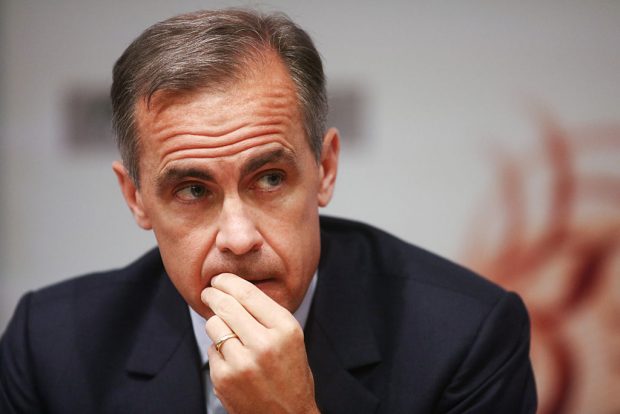With a week to go until the referendum, nerves are running high in both the ‘Leave’ and ‘Remain’ campaigns. This morning, we’ve seen that nervousness manifest itself in a spat between senior Tories and the Treasury and the Bank of England. Iain Duncan Smith, Michael Howard, Lord Lamont and Lord Lawson have signed a letter saying both the BoE and Treasury have been ‘peddling phoney forecasts’ to scare people into backing ‘Remain’. In their letter to the Daily Telegraph, they go on to say that:
‘There has been startling dishonesty in the economic debate, with a woeful failure on the part of the Bank of England, the Treasury, and other official sources to present a fair and balanced analysis. They have been peddling phoney forecasts and scare stories to back up the attempts of David Cameron and George Osborne to frighten the electorate into voting Remain.’
It’s hard to fault their reasoning here. At the very least, the Treasury hasn’t painted itself in glory during this referendum campaign. Their projections have come under heavy fire before and one of the worrying things about their forecasts is how the Office for Budget Responsibility, which is meant to review such projections, hasn’t been allowed anywhere near them to give them the scrutiny they require. What’s more, even if the forecasts themselves aren’t deliberately intended to be ‘phoney’, predicting what might unfold in 2030, as the Treasury has tried to do, is all but impossible given how many variables are involved.
It’s not only the Treasury coming under attack, though. The letter goes on to say that the Bank of England is guilty of a ‘woeful failure’ to present a fair and balanced analysis. This criticism stems from Mark Carney’s willingness to speak out over Brexit – both on TV and in front of various Parliamentary committees. He’s been keen all along to point out that his job as Governor is to warn against events which could affect the stability of the UK’s economy. That much seems fair. But Carney never really gave a decent response to Jacob Rees-Mogg when he asked him why, if he was so keen to warn about the instability Brexit might bring about, he didn’t offer his thoughts ahead of a general election, when arguably similar turmoil and unpredictability could play out. Clearly no Bank of England governor would warn against a change to the status quo in the run-up to a General Election. So why should he intervene in a similar situation now?
Today’s row doesn’t end there, however. The Bank of England has also been dragged into a separate bust-up involving the Tory MP Bernard Jenkin. Jenkin wrote to Carney warning him that he was ‘prohibited from making any public comment, or doing anything which could be construed as taking part in the referendum debate’. But based on Carney’s reply, which has come out today, that warning wasn’t taken in good spirits. The Bank of England’s governor has said the letter had a number of ‘substantial misconceptions’ in it, and he went on to insist, once again, that it had been his ‘duty’ to speak out.
This row has all the hallmarks of a sideshow in the wider referendum debate. But whilst the ins and outs of this row are unlikely to filter out to the wider public, they are serving an important role for the ‘Leave’ campaign. The Government and those campaigning for Britain to stay in Europe have built their argument on the string of warnings against Brexit from the likes of the Treasury and the Bank of England. So anything, such as today’s events, which are able to knock peoples’ confidence in the credibility of such warnings could do serious damage to ‘Remain’ who are already finding themselves flailing in the run-up to referendum day.







Comments